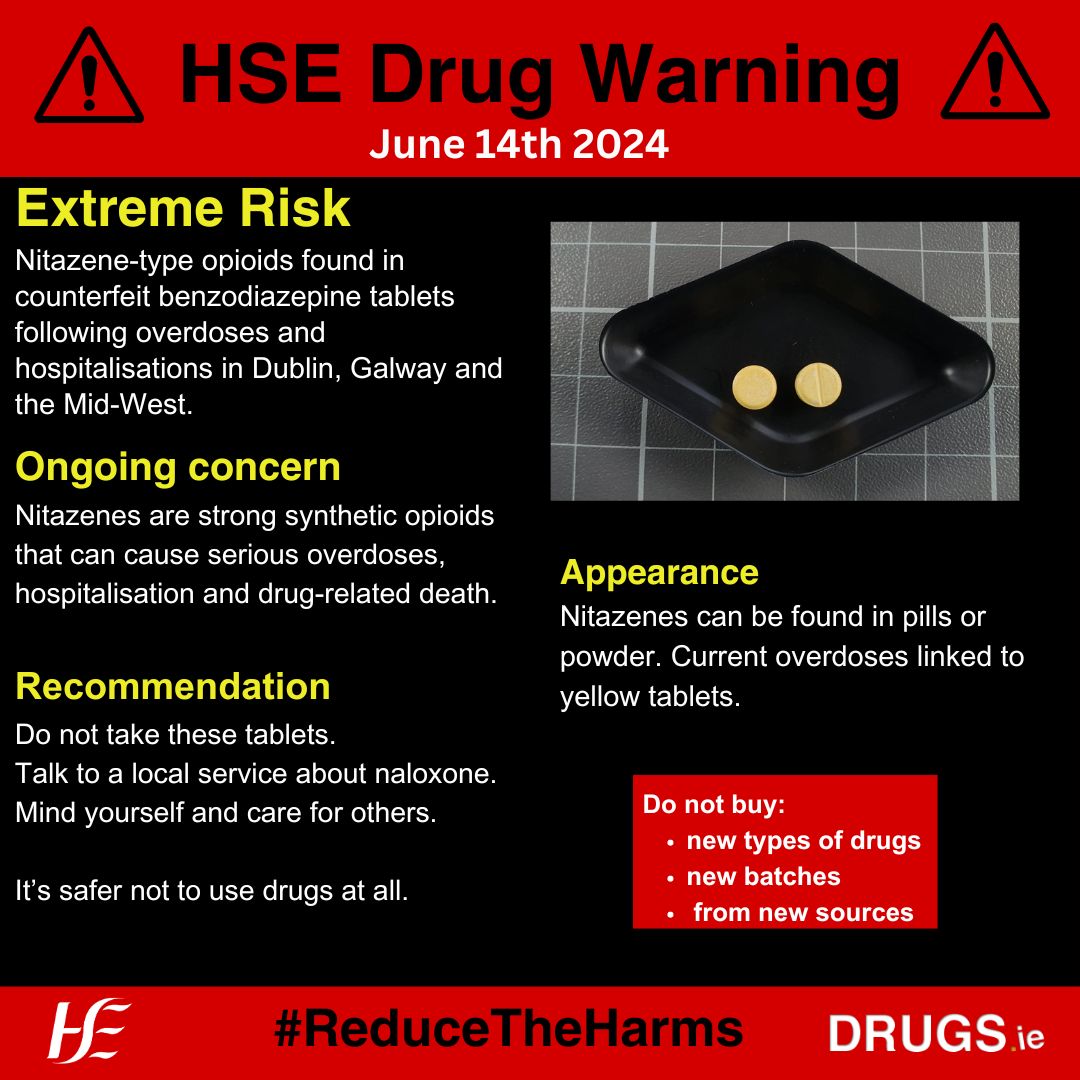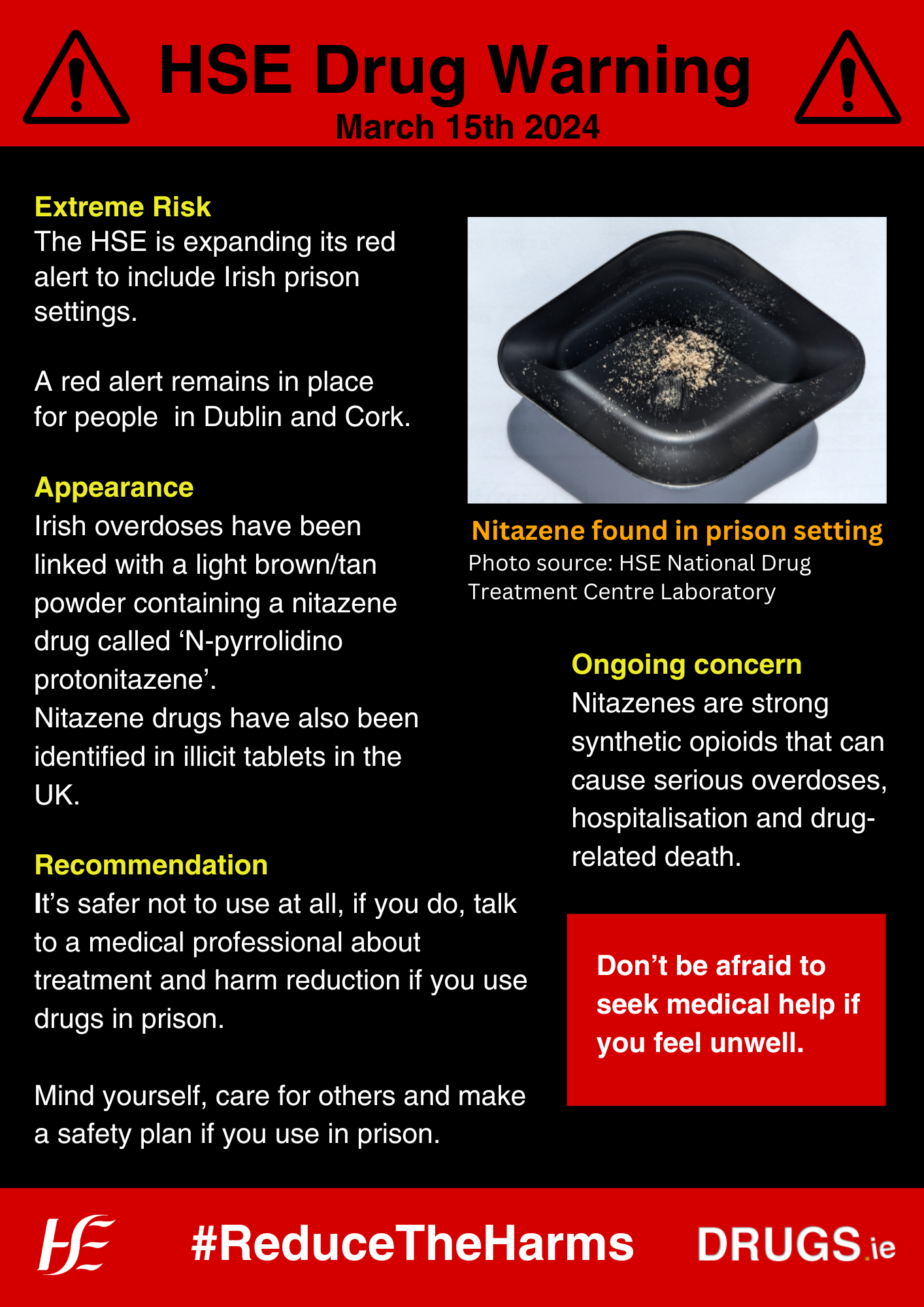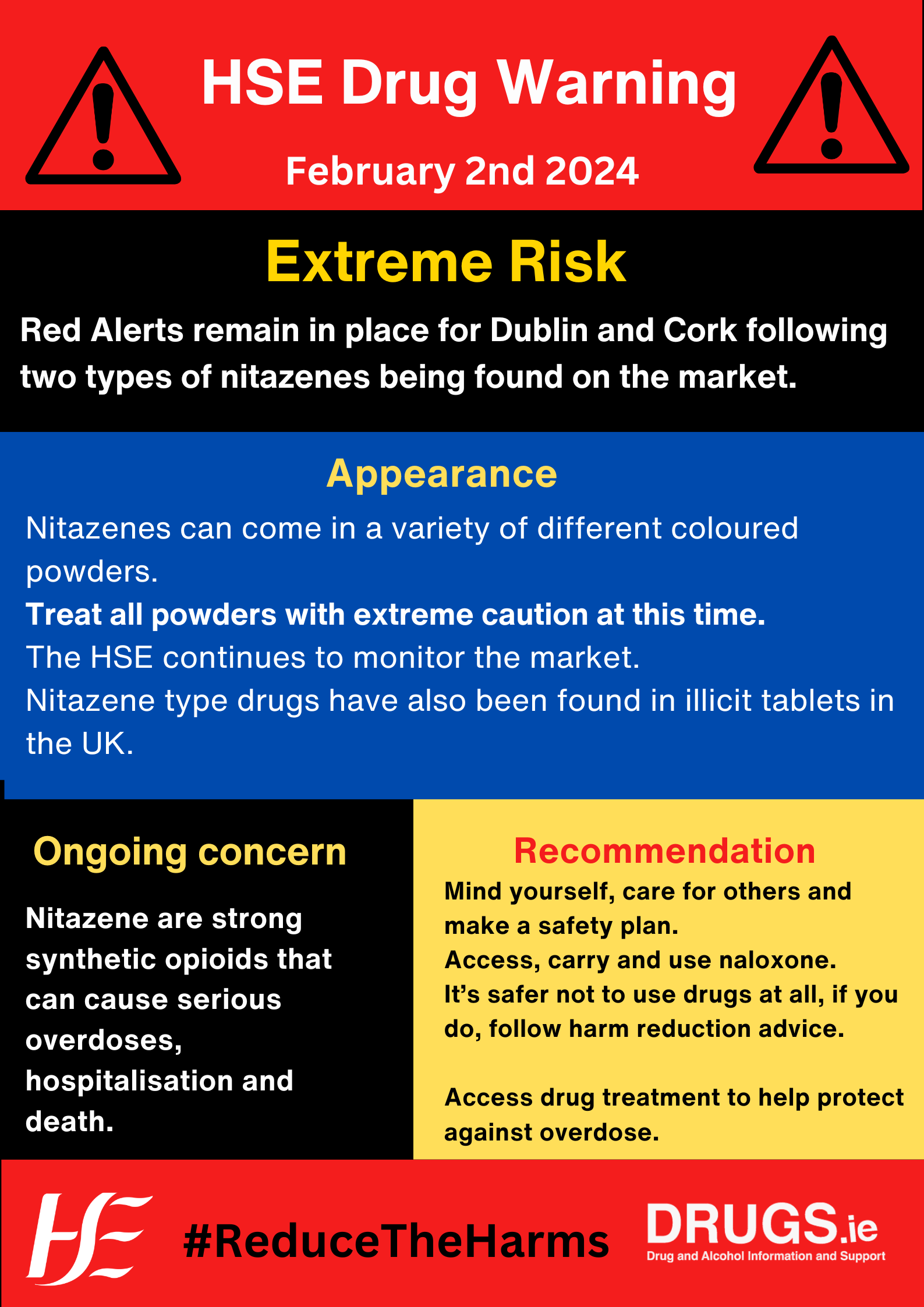Synthetic opioid preparation
HSE Update on the emergence of synthetic opioids on the Irish market
This page will be kept up to date with the latetst developments and resources for people who use drugs and professionals in response to the emergence of nitazenes on the Irish market.
Latest update: Nitazenes detected in yellow tablets sold as benzodiazepines
A national red alert remains in place since the 14th of June 2024 following the identification of a nitazene-type substance in yellow tablets sold as benzodiazepines across different regions and in a Dublin prison setting. These tablets have been linked with overdose clusters.
We are concerned about the geographical spread of these substances which could appear on markets nationally, increasing the risks for people who use. Naloxone is a medicine that can reverse an opioid overdose that involves nitazenes. If you are at risk of overdose, contact a local support service or your GP (family doctor) to obtain naloxone free of charge.
Get tablet harm reduction information here

Download this alert here
15th March 2024 HSE extends Red Alert to Prison settings
The HSE is extending its current Red Alert to Irish Prison settings following a small number of related overdoses.
Analysis conducted by HSE National Drug Treatment Centre Laboratory has confirmed the presence of a nitazene type substance, called N-Pyrrolidino protonitazene, associated with overdoses in Irish prisons. Red Alerts continue to remain in place for the Dublin and Cork Regions as there is an on-going risk of these substances continuing to emerge on the market.

Alert issued 2nd February 2024 regarding new batch of nitazene powder
A new alert was issued on the 2nd of February following the identification of a new batch of nitazenes.
The most recent information from the HSE is that nitazenes could now appear in a variety of coloured powders.

National Red Alert Group (NRAG)
A Irish National Red Alert Group (NRAG) has been formed to monitor cases of concern and to rapidly respond to future outbreaks should they occur. This cross-sector group is coordinated by the HSE National Clinical Lead for Addiction Services and includes representatives from the National Social Inclusion Office, The National Ambulance Service Director, The HSE National Drugs Treatment Centre Laboratory, The Garda National Drugs and Organised Crime Bureau, Forensic Science Ireland, The State Laboratory, hospital network ED representative, Trinity College Dublin and HSE Communications Division.
Resources for people who use drugs and service providers
At present, it is only the heroin market and benzodiazepine market (as yellow tablets) which is impacted by the emergence of nitazenes in Ireland.
This is an area that needs to be intensively monitored for future developments. There are always risks and all drug user groups are advised to follow harm reduction measures and get medical help immediately if a person becomes unwell.
- Harm reduction advice for people at risk of nitazene exposure in Ireland: See our harm reduction page here.
- Reporting forms: Drug monitoring and overdose of concern in services
- HSE alert nitazene A5 leaflets
- HSE alert nitazene A4 poster
- Harm reduction information for a range of drugs can be found on our site here
- Health Service Executive Ireland. Synthetic opioid preparedness, interim HSE guidelines, V1 December 2023. Download here
WATCH BACK: HSE Webinar: Safeguarding communities against nitazenes (22nd February 2024)
In light of the overdose outbreaks in Dublin City Centre and Cork due to the emergence of N-Pyrrolidino protonitazene in November and December 2023 respectively, and the recent identification of a second batch in Dublin's drug market, the HSE National Social Inclusion Office developed this webinar to equip frontline service providers.
Watch online here
Information for medical care providers
Emergency service providers and hospitals are being advised on the requirement for additional doses of naloxone to treat synthetic opioid overdose presentations, with preparations now required to ensure medical service providers have adequate supplies of naloxone should outbreaks begin to occur nationally. With N-pyrrolidino protonitazene now under intensive monitoring by the EMCDDA, all drug market shifts and overdose clusters should be reported to the NRAG for urgent review and action if deemed appropriate..
All organisations that provide emergency care for opioid overdose should ensure staff are supported to:
- Recognise and treat suspected cases as for any opioid overdose, using naloxone and appropriate supportive care.
- Recognise the duration of action of naloxone is shorter than that of many opioids and appropriate monitoring and further doses of naloxone may be required.
Resources for medical care providers
- NRAG update for medical care providers can be downloaded here
- The Centre for Forensic Science Research and Education Alert on N-pyrrolidino Protonitazene (August 2023)














